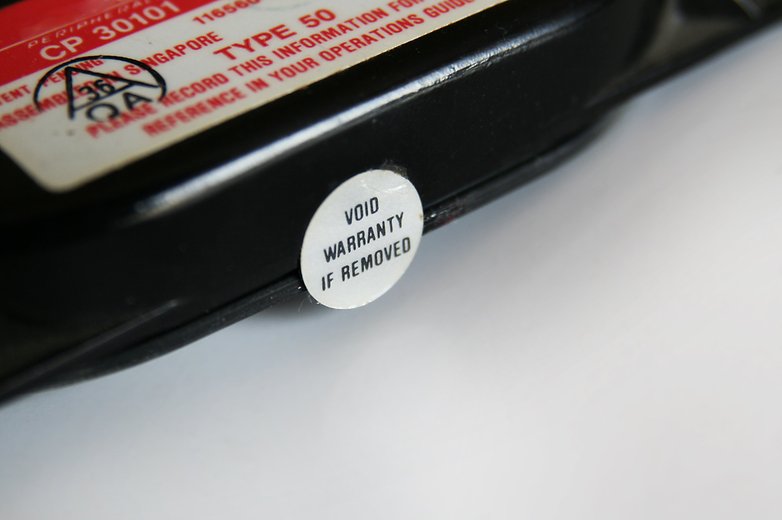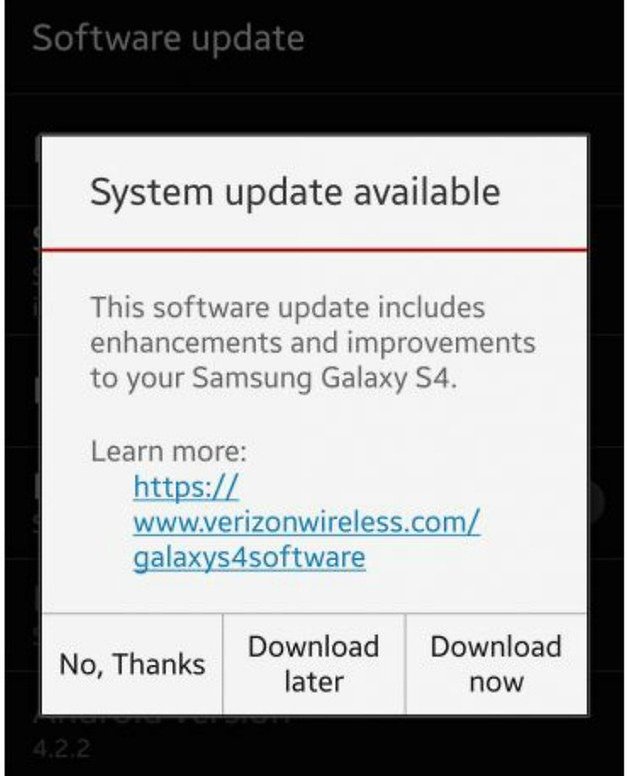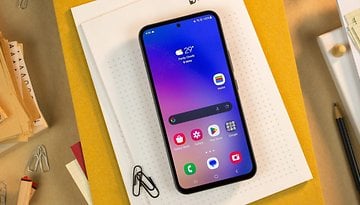5 reasons not to root your Android device


Recently, we presented 10 reasons to root your device and today we’ll show you the other side of the coin: 5 reasons as to why you shouldn’t get root access on your device. Rooting does give you a bunch more options with what you can do with your Android device, but what are the downsides to this access? Take a look.

Security Risks
By gaining root access, you get total control over the entire system. With the right skills and tools, you can read and modify almost any parameter on your device. This is the reason why some apps, as as SuperSU, require root access in order to work properly. However, this type of access is a double edged sword as with root access nothing is there to prevent malicious applications from wreaking havoc on your system: system files can be corrupted or deleted, personal information can be skimmed, and you could even soft brick your device.

However, the silver lining to all this is that the user has to allow an application access to root privileges before they can gain the access, so it is always a good idea to do some research on applications that are asking for root permission.
Warranty out the window
Obviously, gaining root access ins’t something that is officially supported by manufacturers, otherwise we’d start seeing device coming already rooted straight from the factory. As such, if you gain root access on your device, you can more than likely kiss your warranty goodbye. Some devices, such as Samsung, even have a flash counter built into them that will keep track of whether or not a user has tampered with the firmware and installed unofficial software and this can be checked even if the phone has been unrooted and locked again. While there are methods of restoring this back to zero, there are no guarantees that the Warranty department won’t catch on.

It’s not a guarantee that ALL warranty claims will be denied due to rooting your device, but anything having to do with the software side of things (ie: softbricking your device on accident) most likely won’t be approved.
Not all devices are created equal

The procedure to root a device varies from manufacturer to manufacturer and even from device to device. There is no “official” method for rooting your device. For example,while most Samsung devices requires you to use the Odin software on your PC to get the same results. As such, with device specific instructions that often require multiple steps and at least a decent understanding of computers, there is a much larger chance for things to go wrong and possibly rendering your device unusable.
Problems with updates

Another common issue that comes along with rooting your device is that you’ll start seeing that automatic updates to the firmware stop being pushed to you. For example, you’ll no longer have the convenience of seeing updates via Wi-Fi (OTA) and management software such as Samsung KIES will no longer work properly. You’ll see be able to manually update the firmware and flashing it to your device, but it is a relatively cumbersome process to have to do each time a new version of your firmware is released.
You’ve got a rooted device, now what?
One of the most important thing to consider: when you’ve rooted your device, you gain a ton more access to areas of your device that were previously out of your reach. But with this access, what exactly are you going to do with it? Is there something out there that will get what you want done without needing root access?
The intention of this article isn’t meant to scare anyone out of rooting their device, but rather highlight some of the risks associated with the process itself.
Have you ever had any issues when attempting to root your device? Let us know in the comments.




















I used to use the FreedomPop "free" cell service, first on an S2 and then on a Galaxy S2. After I rooted the S2, I could not reconnect to the FreedomPop service--they didn't support it on rooted devices.
what is best alternative to MirrorGo?
Hello I am new is there any chance of brick non rooted mobile by using adb shell commands for move to data or install app to sd card pc
It is not true that the warranty is always lost when rooting a phone. That only happens in countries that do not respect consumer rights and favour those who live from exploiting the people. It must be the same as when you change the OS on your computer. You can install any OS you want without losing the hardware warranty. Don't believe? follow the link for a short explanation and find there the link to the longish European Union Directive with the rules. This is not knew, so I fail to understand why people in the USA keep ignoring this. To protect those exploiting people and make them accept out of their lack of knowledge?
Well, you will have to search by yourselves because – and this is funny – comments do not accept links.
In every country they have to send information about your phone to samsung korea to repair it. So if your phone is rooted your fucked.
But if the hardware fails then it's should be ok.
Fuck u
Is your sister beautiful ; sexy and hot??
I have never had a device that wasn't rooted, and if I know in advance it can't be rooted I won't buy a device that can't be rooted. I'm not spending 700.00 on a device and not have control over it, and I don't like all the bloatware on stock ROM's. The user interface is boring, so I "theme" mine and liven up the colors. And I would take issue with the Author saying a rooted phone is more open to Exploits. We can put the same apps on our phones as a non rooted user can, and if the hack is amazing, and they usually are, they will affect either rooted, or non rooted. SO root that bad boy and have fun. Also the developers are careful to give step by step instructions, and it isn't easy to brick a device.
well at least if you keep to the instructions and check the files' checksums properly, not much can happen
.. root + Cyanogenmod .. The way to go..!!
I had someone who rooted my S4 but then I started yarnning for software updates. The guy could not able to bring it back. When I uninstalled the SuperSu app, I was able to download the latest software update but then the phone started miss behaving. The battery ran out fast, stale screen problem, and network signal lost. My carrier network could not give signal again and so I couldn't make or receive calls. I had to give it back to him to re-root. It is running great, super fast and very responsive. It is quite smooth but because of software updates, I still decided to get the S5 which I'm presently using. I wish I had the idea of getting the software updates on a rooted phone so I could go back to my S4 or root my S5.
If your friend would have looked a little closer, he would have found that developers always make a "zip" file that could have been "flashed" every time a update was released.
I still haven't rooted my Nexus 4 and didn't find it necessary to do so. My first smartphone, ZTE Blade, I had to root the first week I bought it because of a bug in the wi-fi driver that disconnected the wi-fi every time the screen was off.
Yep, never flash anything without reading comments first (unless you know what you're doing)
even if you know what you are doing you should read about System versions or carrier models (if you live in america) and whatnot...
In the end rooting isnt a problem if you are a responsible user who doesnt flash everything without looking...
Rooting isn't that scary, and it's beneficial when your cell gets older, and gets behind the times. Most phones have a easy way to root, that may not involve a pc (except the backing up part). I find that it's easier to root a cell with a sdcard slot. Security can be as tight as you want it to be with all the different malware detectors, antivirus apps, and other means, so that's not a prob. Some ota's do absolutly nothing, and can cause stability issues, reintroduce the bloatware, that you painstakingly, over the life of the phone, have tried to get rid of, only to see it reappear. Ha! stability my ass! I had a cell, that came from the mfg, with the wrong usb drivers( anybody that bought that model was screwed). I was able, after rooting it, to change the ID's(with discover help from a linux distro) to make it work. I used xposed modules(on stock, rooted rom), and it was more stable, scored almost 3000 points higher on quadrant standard( actually beat more expensive cells, with more memory, better processors, etc.. ) . I had way more features,and things it didn't come with, better launcher( sorry stock launchers, are power hogs, and can be too complicated). Rooting is a lot safer today, than it was three years ago, and soft bricks are easily fixed, as long as you read up on the fix.The only thing that scares me, is the bootloader, some cells require that to be unlocked, to root, but there's not many cells(extreme minority) that need that to be unlocked for that. If you read up, get as much info, for your particular cell, rootings not dangerous at all, all of the cells I've had, have benefited from rooting. You'll love your cell a lot more, make it interesting to you, for a lot longer, and when you see a software feature, that you want, but isn't on the cell, because it's rooted, you have a very,very good chance of getting it. Android and rooting, that's the way to go! And if your reading these sites, you have more than a passing interest in smartphones, and want to know things, there seems to be so much "wolf crying" out there, with the uninformed, go to xda developers, and learn the truth about how things work.
Hey Reg. I am interested in rooting my Samsung 4g ZTE. Can you walk me thru this plz ? THZ Sassy : )*
"We will stop getting OTA updates once we are rooted" but who cares? If you are an advanced user then you probably would be ahead of what the OTA brings.